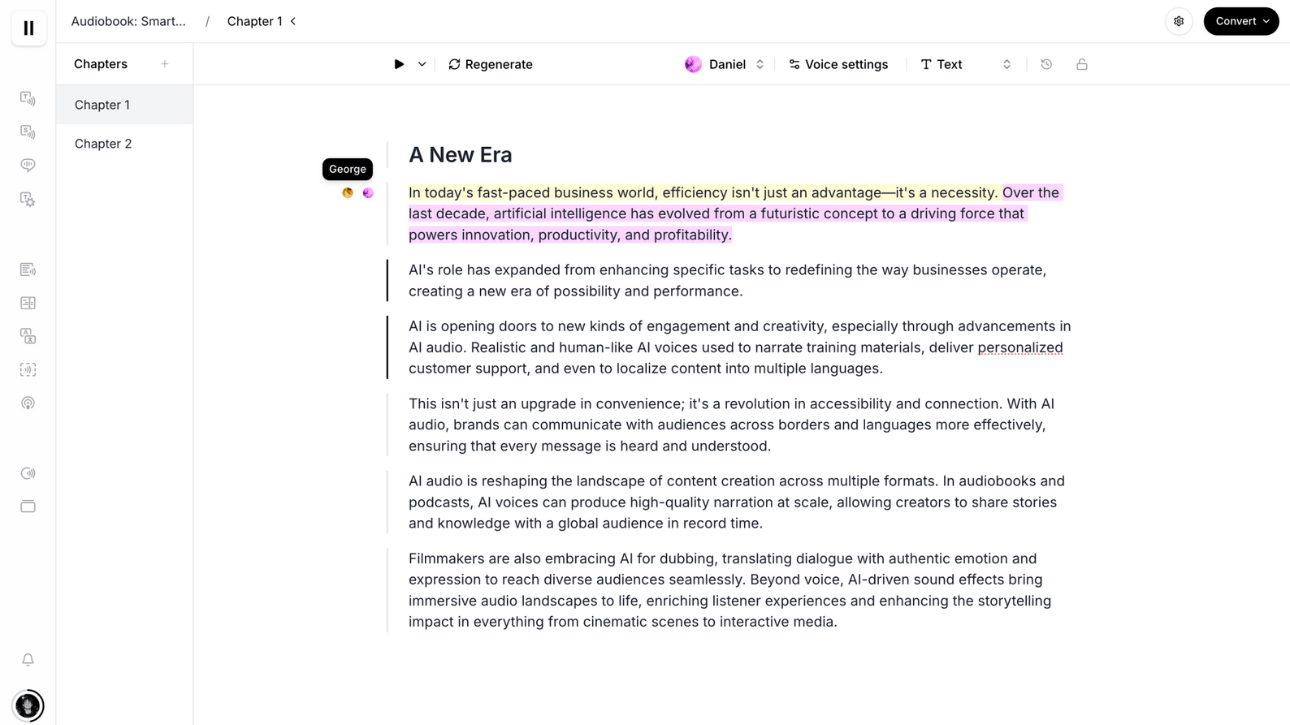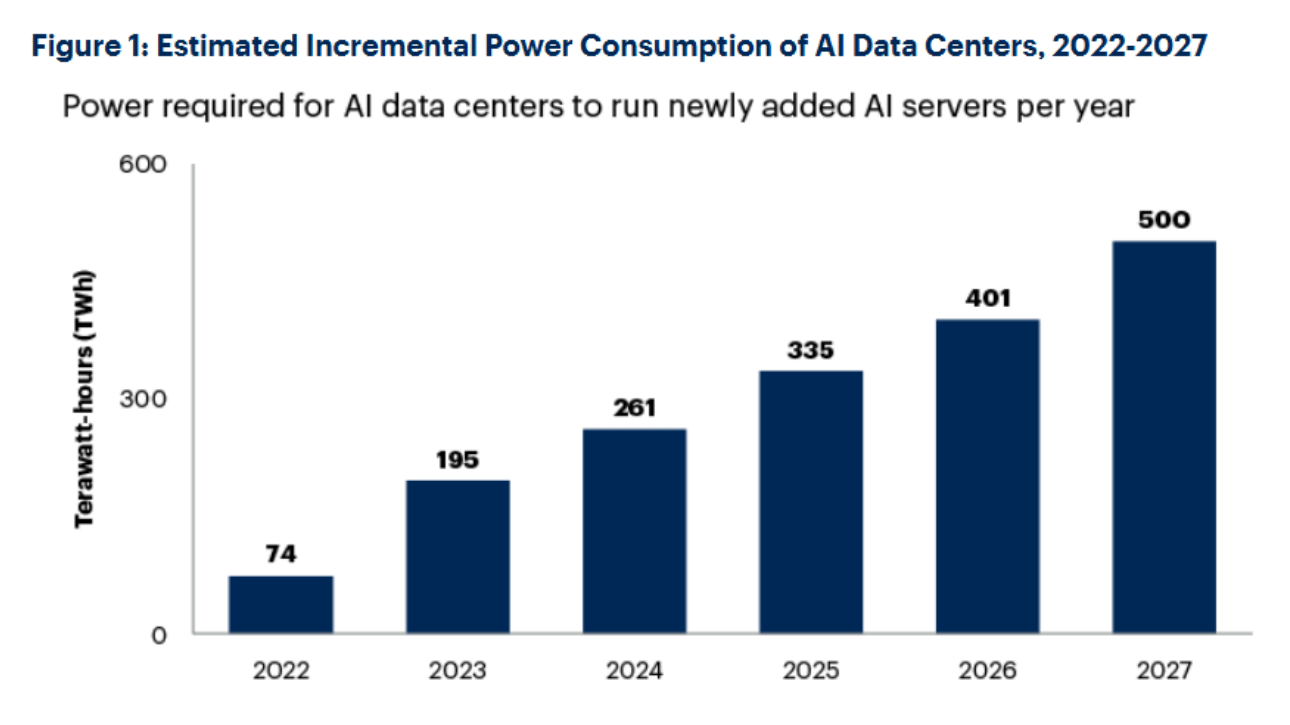- The Logical Box
- Posts
- NASA & Microsoft collaborate on AI-powered Earth Copilot to simplify access to complex satellite data
NASA & Microsoft collaborate on AI-powered Earth Copilot to simplify access to complex satellite data
PLUS: AI-generated poetry fools readers and outshines human writers

Hello, AI Explorer! Welcome to The Logical Box
NASA has partnered with Microsoft to develop Earth Copilot, an AI-driven tool using Azure OpenAI Service to make vast amounts of Earth Science data more accessible to a wider audience.
Let’s get into it…
Let’s Take a Peek Inside the Box for Today’s Issue:
NASA & Microsoft collaborate on AI-powered Earth Copilot to simplify access to complex satellite data
AI-generated poetry fools readers and outshines human writers
AI voice synthesis redefines audio content creation
AI data centers face looming power crisis
Musk targets Microsoft in AI monopoly lawsuit
AI Tip of the Week: Transform Meeting Notes into Actionable Insights with AI
Read time: 5 minutes

Image Source: Microsoft
Think Inside the Box:
NASA has partnered with Microsoft to develop Earth Copilot, an AI-driven tool using Azure OpenAI Service to make vast amounts of Earth Science data more accessible to a wider audience.
Unpacking the Logic:
NASA's satellites collect over 100 petabytes of Earth Science data, which is often challenging to navigate due to its complexity.
Earth Copilot allows users to interact with NASA's data repository through plain language queries, simplifying the search and analysis process.
The tool integrates Azure OpenAI Service with NASA's existing data analysis platform, VEDA, to enable intuitive data discovery.
Earth Copilot aims to democratize access to spaceborne data, benefiting researchers, educators, policymakers, and the general public.
The project aligns with NASA's Transform to Open Science initiative, which seeks to break down technical barriers in data access.
The Logical Impact:
From a practical standpoint, Earth Copilot represents a significant step towards democratizing complex scientific data. This raises an important question for businesses and organizations: How can AI-driven tools be leveraged to make your specialized data more accessible and valuable to a broader audience, potentially leading to new insights and applications?

Image source: Ideogram / Andrew Keener
Think Inside the Box:
A new study reveals that AI-generated poetry is not only indistinguishable from human-written verse but is also rated more favorably by non-expert readers, challenging perceptions of creativity and authorship.
Unpacking the Logic:
Researchers conducted two experiments involving 830 participants to compare AI-generated and human-written poetry.
In the first experiment, participants failed to reliably differentiate between AI and human-authored poems.
The second experiment showed that readers rated AI-generated poems significantly higher in quality than human-written ones.
AI-generated poems were perceived as more emotional, vivid, and relatable compared to their human-authored counterparts.
The study used GPT-3.5 to generate poems, demonstrating the advanced capabilities of current language models in creative tasks.
The Logical Impact:
From a practical standpoint, this study raises profound questions about the future of creative writing and the role of AI in the arts. As AI continues to excel in creative tasks, how will industries relying on human creativity adapt, and what new opportunities might emerge from this technological advancement?

Image source: ElevenLabs
Think Inside the Box:
Microsoft has entered into a deal to purchase the Three Mile Island nuclear power plant site in Pennsylvania, with plans to use it for powering AI data centers, marking a significant move in sustainable energy sourcing for tech infrastructure.
Unpacking the Logic:
ElevenLabs' AI technology allows users to generate natural-sounding speech in multiple languages and accents.
The platform offers tools for customizing voice characteristics, such as tone and pitch, to suit specific creative needs.
It supports a wide range of applications, including audiobooks, podcasts, and video narration, enhancing accessibility and engagement.
The AI-driven system can clone voices, providing creators with the ability to replicate specific vocal styles or create entirely new ones.
ElevenLabs emphasizes ethical use and has implemented safeguards to prevent misuse of its voice synthesis technology.
The Logical Impact:
From a practical standpoint, the advancements in AI voice synthesis by ElevenLabs open new possibilities for content creators across industries. This development prompts an important question: How can businesses leverage AI-generated audio to enhance their communication strategies and reach broader audiences effectively?

Image source: Gartner
Think Inside the Box:
Gartner predicts that by 2027, 40% of existing AI data centers will face operational constraints due to power shortages, as the rapid growth of AI and generative AI workloads outpaces utility providers' capacity to meet demand.
Unpacking the Logic:
Power required for AI-optimized servers in data centers is expected to reach 500 terawatt-hours (TWh) per year by 2027, 2.6 times the 2023 level.
Data center power consumption forecasts show potential growth of up to 160% over the next two years.
New hyperscale data centers for generative AI are creating unprecedented demand for power.
Short-term power shortages are likely to persist for years, as new power infrastructure could take significant time to come online.
By 2026, 90% of new enterprise data center deployments will incorporate AI accelerators to support AI and machine learning workloads.
The Logical Impact:
From a practical standpoint, this impending power crisis poses significant challenges for the AI industry and data center operations. This raises a critical question for businesses and technology leaders: How can organizations balance the growing demand for AI capabilities with sustainable energy practices and infrastructure planning to ensure long-term viability and growth?

Image source: Kristen Radtke / The Verge; Getty Images
Think Inside the Box:
Elon Musk has amended his lawsuit against OpenAI to include Microsoft, alleging that their partnership constitutes a "de facto merger" and engages in anticompetitive behavior by monopolizing AI talent and resources.
Unpacking the Logic:
Musk accuses OpenAI and Microsoft of forming an exclusive partnership that limits competition in the AI industry.
The lawsuit claims this partnership has led to a concentration of AI talent and resources, disadvantaging other companies.
Musk's legal action suggests that Microsoft's involvement with OpenAI restricts innovation by controlling key AI developments.
The amended lawsuit highlights concerns over the potential monopolistic control exerted by major tech firms in the AI sector.
This legal move reflects broader industry worries about the balance of power and fair competition in rapidly evolving AI markets.
The Logical Impact:
From a practical standpoint, this lawsuit underscores significant concerns about monopolistic practices in the tech industry. This raises an important question for stakeholders: How will the outcome of this legal battle influence future collaborations and competitive dynamics in the AI landscape?
AI TIP OF THE WEEK
AI TIP OF THE WEEK
Transform Meeting Notes into Actionable Insights with AI
Tired of wasting time deciphering messy meeting notes or manually identifying action items? AI can streamline this process, turning your notes into actionable insights in minutes.
AI-powered tools like Fireflies.ai, Otter.ai, or ChatGPT (with transcription integrations) can:
Automatically transcribe your meetings.
Highlight action items, deadlines, and follow-ups.
Provide summaries you can share with your team instantly.
Actionable Steps
Choose Your Tool: Select an AI transcription tool that aligns with your budget and needs (e.g., Otter.ai for simplicity, Fireflies.ai for integrations).
Record Your Meetings: Use the AI tool to transcribe meetings in real-time or upload recordings.
Generate Insights:
Let the AI summarize key points.
Extract tasks and deadlines using natural language processing features.
Integrate: Sync with tools like Trello, Asana, or Slack to assign tasks seamlessly.
Review: Always verify the AI’s results to ensure accuracy.
Why This Matters for SMB Leaders
For SMBs, efficiency is critical. By automating meeting transcription and task identification:
You save time.
Your team stays aligned and productive.
You can focus on strategic tasks rather than administrative ones.
Additional Resources
Fireflies.ai: AI meeting assistant for transcription and task tracking.
Otter.ai: Simplified transcription with team collaboration features
ChatGPT Integration Guide: How to use ChatGPT for custom meeting insights.
Don't let meeting notes pile up as a missed opportunity.
Empower your team with AI tools to extract insights effortlessly, so you can turn discussions into actions that drive results.
Please share The Logical Box link if you know anyone else who would enjoy!